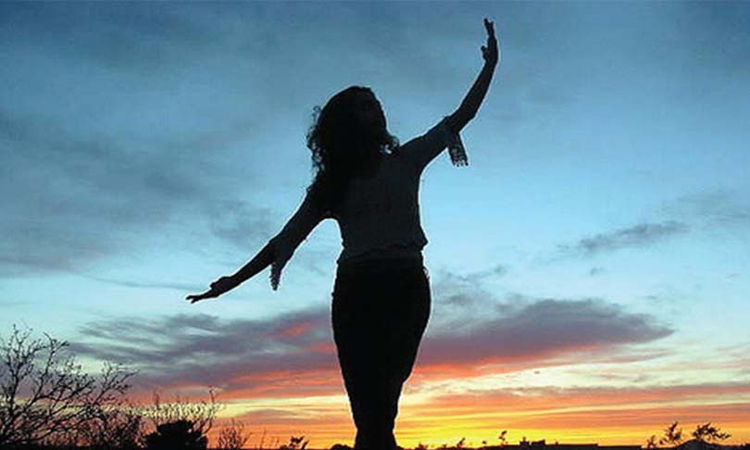Perpetuating The Inequality: The Dichotomy Of Our Society
Karuna Krishan Thareja
9 March 2020 11:39 AM IST

Thoughts on International Women's Day
Pertinently today on the occasion of Women's day, I had a long conversation with my lady help. I enquired that why wasn't she picking my call, to which she responded, that her husband came home drunk last night and created a huge ruckus and broke her phone! He also took her money and abused her. On hearing this, I was both saddened and enraged. Contemporaneously, I have been receiving marketing messages about Women's day offers, discounts and just celebrating womanhood etc.
I am perplexed by the dichotomy that exists in our society. Superficially, the society paints a picture that all is well and women are progressing in every field. Whereas, the reality at a grassroots level or in fact for a lot of women across classes, culture and nationalities is different than what is projected by movies and advertising Industry and social media.
Most Indian women continue to struggle for a place in the society where they are heard, acknowledged and respected. Although the country's constitution says women have equal status to men, women are powerless and are mistreated inside and outside the home because India is a society where the male is greatly revered. Patriarchy continues to pervade across classes, cultures, structures and relationships. Women still struggle for basic human rights; to be considered as an equal gender.
The recent ruling by the Supreme Court of India with respect to women army officers making them eligible for permanent commissions, and allowing them to be in commanding roles is a reflection on the fact that the Army needed a Court's diktat to consider women officers on par with men when it comes to promotions, ranks, benefits and pensions. The ruling has been hailed as a "great leap" towards equality in the army. But is it really possible for women to knock the doors of court each time their rights are violated? Is it only up to the Legislative bodies and the Judiciary to fulfil the Constitutional mandate of gender equality? Do we not owe any responsibility and accountability in our conduct and behaviour to uphold the basic human rights of women?
In my opinion, the real question we need to put to ourselves today on the occasion of Women's day is this - irrespective of our gender - how are we empowering women in our homes and communities?
As Eleanor Roosevelt famously said:
"Where, after all, do universal human rights begin? In small places, close to home, so close and so small that they cannot be seen on any map of the world [...] Such are the places where every man, woman, and child seeks equal justice, equal opportunity, equal dignity, without discrimination."
Today, on the Occasion of Women's day, we don't need to look far and beyond. We can and must celebrate and respect the life and dignity of the women in our lives. To not view women as "weaker sex" or a "vulnerable person" or a "sexual object", but, to recognise 'her' as an 'individual' whose boundaries, thoughts, ideas and ENTITY needs to be respected. To not label her or confine her in stereotypes, but to love her, encourage her, respect her and to "Let her be" her own person.
Lets us strive to promote a healthy discourse and dialogue about Women's rights. Women, historically, have found in themselves the stand-alone spirit, and have fought through the annals of patriarchy and regressive structures and broken the "glass ceiling" and have made great, great contributions in society against all odds
Therefore, at some level, this rhetoric that "Women don't need to be empowered" resonates with me. It is the same as the fact that you cannot 'give' Human Rights. They are basic, intrinsic and inalienable to the fabric of our existence. To quote Legal Stalwart, Ms. Meenakshi Arora, Senior Advocate Supreme Court of India from her article 'Creating a World of Gender Justice and Dignity' -
"Whether it be the right to vote or the right to choose what happens to our bodies, the discourse, as and when it occurred, was geared towards 'allowing' or 'permitting' us to exercise these rights, rather than admitting that these rights had been unfairly taken away from us in the first instance. […]
With our combined efforts, we can leave behind a fairer and more egalitarian world for our daughters – a world where treating women with respect and dignity is ingrained into the societal fabric, rather than being an obligation of the law."
In the words of a noted Buddhist leader,
"One of the first steps in achieving human rights is to appreciate and embrace people's individuality. It's also important to develop a solid perspective towards people, realising that though others may be different from ourselves, we are all members of the same human family."
Women, have the ability, competency, potential to take and make great strides in society and the world. If at all, the society does not create barriers to her growth and evolution. All we have to do is ensure that we don't deprive Her of the resources, opportunities, justice, dignity and integrity that she so rightly deserves - at homes, workplace, community at large and rather support and help her to realise her full potential as a human being - not merely as a Woman. Let us strive to create and foster a gender-just world which enable women to participate fully in economic life across all sectors which in is essential in building stronger economies, achieve internationally agreed goals for development and sustainability, and improve the quality of life for women, men, families and communities.
The Author is a Lawyer and practicing Advocate in the Delhi High Court and Supreme Court of India. Karuna is a strong proponent of women, child rights, and cyber safety.


